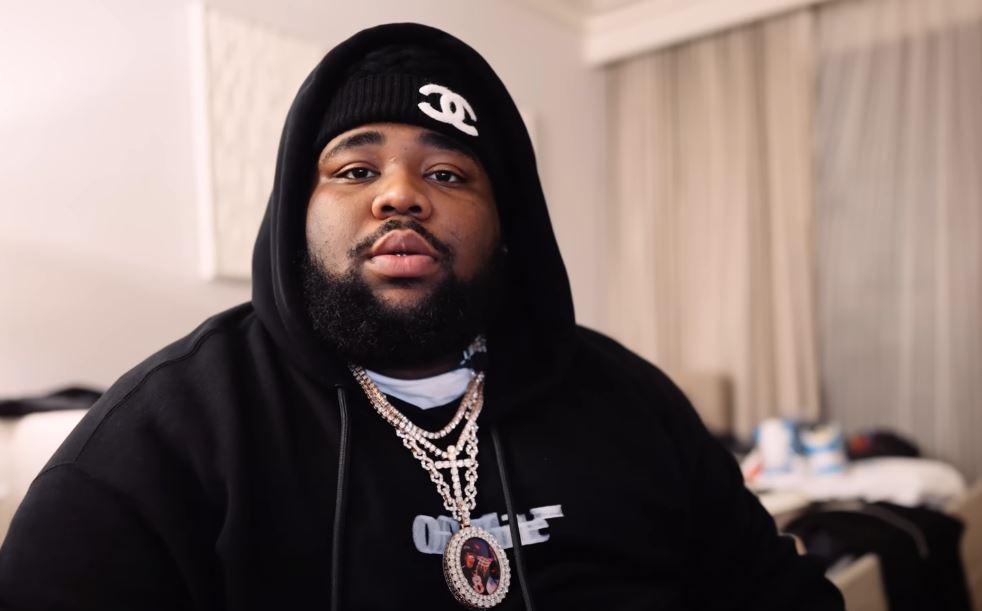
Rod Wave’s most recent headline is all about a multimillion-dollar lawsuit, not his trademark heartfelt songs. Grizzly Touring, a well-known concert promotion company, is suing the number-one rapper for about $27 million, claiming he did not complete his widely reported “Last Lap” tour. The disagreement has swiftly grown into one of the most well-known court cases in the music business, exposing the enormous financial risks that accompany contemporary touring.
The lawsuit claims that Rod Wave received nearly $57 million in advances from Grizzly Touring, a joint venture between AG Entertainment, Mammoth Touring, and CTS Eventim, to finance the 35-city arena tour. The funds were intended to pay for production, travel, and lodging. However, according to the company, the rapper only finished 26 of the 35 shows that were planned before abruptly calling off the remaining ones. According to Grizzly, the remaining $27 million was never given back.
| Attribute | Information |
|---|---|
| Full Name | Rodarius Marcell Green |
| Born | August 27, 1998 |
| Birthplace | St. Petersburg, Florida, United States |
| Profession | Rapper, Singer, Songwriter |
| Known For | “Heart on Ice,” “Rags2Riches,” “Tombstone,” “Last Lap” |
| Record Label | Alamo / Sony Music |
| Estimated Net Worth | $5–8 Million |
| Legal Controversy | Sued by Grizzly Touring for $27 Million Over Tour Advance |
Rod Wave “refused to pay Grizzly a single penny” of what he owed and instead “chosen to spend his advance on private jets and lavish second homes,” according to the company’s lawyers in an unusually scathing statement. The allegation presents a picture of financial irresponsibility, implying that the rapper put personal indulgence ahead of professional accountability. In order to recoup the unpaid money and prevent him from starting any more tours without their consent, the company is now requesting a court order.
But Rod Wave’s team has retaliated with just as much vigor. David Rose of Pryor Cashman, his lawyer, maintains that the promoter, not the artist, is to blame. He contends that Grizzly’s “onerous and inexplicable” tour routing led to multiple logistical failures and made traveling between cities all but impossible. Rose claims that the cancellations were compelled by poor scheduling, equipment problems, and delays in transportation. The lawyer wrote that “the agreement and its exclusivity provisions are no longer valid due to Grizzly’s manifest breaches.”
The two stories’ contrast is eerily reminiscent of other well-known industry conflicts. It is reminiscent of instances in which creative control, scheduling chaos, and financial oversight collided in public with artists such as Lil Wayne and Kanye West. The magnitude of the claim, however, is what makes this case so intriguing; $27 million is a remarkable sum, even for an artist with Rod Wave’s increasing prominence. It emphasizes how big tours have grown into multimillion-dollar endeavors where even one mistake can result in legal issues.
Live performance has transformed from an artistic endeavor to a commercial empire in the last ten years. A vital component of contemporary music careers, touring frequently generates more revenue than streaming. However, there are risks associated with higher stakes. The Rod Wave lawsuit serves as an example of how easily corporate expectations and creative ambition can clash. It can have repercussions on staffing, expenses, and logistics when a performer alters their production in the middle of a tour, as the lawsuit claims Rod did.
Additionally, according to Grizzly Touring’s complaint, Rod “upped the production scale” without warning, which caused delays in setting up stage setups and necessitated cancellations. He may have unintentionally caused issues that became expensive from a legal standpoint by enlarging the visual scope of his performances, a move that was probably intended to improve the fan experience. It serves as a reminder that operational accuracy and artistic vision—albeit especially inventive—must coexist.
Meanwhile, fans are split. Rod is defended by many, who characterize him as a genuine artist overburdened by the demands of extensive touring. They contend on social media that promoters frequently overbook performers in an effort to increase revenue, leaving them worn out and overworked. But others wonder why, if he couldn’t finish the tour, he took tens of millions in advance. Both viewpoints shed light on a growing discussion concerning accountability in the entertainment sector, one that is noticeably heightened by the instantaneity of digital scrutiny.
The lawsuit also highlights how quickly Rod Wave’s career changed. He was once praised for his moving tales and intensely intimate lyrics, but now he must strike a balance between professionalism and genuineness. His rapid ascent from local Florida performer to arena mainstay can be both advantageous and disadvantageous. Many young artists experience new pressures when they suddenly become famous, such as contracts, hiring staff, and making financial decisions that require knowledge they rarely have time to acquire.
Rod has alluded to feeling misinterpreted by the industry apparatus in recent interviews. His purported claim that promoters can “work other rappers, not me” betrays a deeper dissatisfaction with the commercial aspects of celebrity. Some see it as a reflection of his defiance of corporate norms. Others interpret it as a dangerous disengagement from responsibility. In any case, it depicts a well-known conflict that still characterizes modern entertainment: the artist versus the system.
Additionally, the case has wider ramifications for the drafting and enforcement of music contracts. According to legal experts, this disagreement might lead promoters to include more stringent repayment terms and thorough production supervision in subsequent contracts. Artists may, however, advocate for more accommodating contracts that take into consideration changes in their creative vision and tour fatigue. This development would be especially helpful in a field where physical fatigue, mental stress, and logistical errors frequently coexist.
It is impossible to overlook this story’s cultural resonance beyond the legalities. Fans of Rod Wave frequently refer to his music as the emotional honesty and resiliency soundtrack. His current situation is made more complicated by that reputation. Authenticity and relatability—qualities that are currently under public scrutiny—were the foundation of his brand. However, the tone of his online comments—calm, introspective, and slightly rebellious—indicates an artist who is committed to going forward rather than backward.
His lawsuit could be used as a case study on the literal and figurative costs of artistic ambition. It serves as an example of how achievement can increase responsibility and opportunity. Although Grizzly contends that the move itself violates exclusivity terms, Rod may be moving toward more control by pursuing independence through his own touring company, Mainstay Touring. As more artists strive to take control of their creative process from stage to streaming, the conflict between autonomy and obligation seems particularly pertinent.
As the case develops, it has already changed the way that promoters and performers talk about trust. Transparency has become the most valuable currency in a spectacle-based industry. In a time when music is as much a business as it is an art form, Rod Wave’s $27 million lawsuit is about redefining justice, not just about broken contracts or postponed performances.
